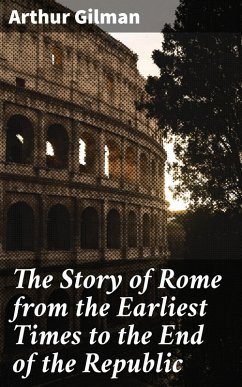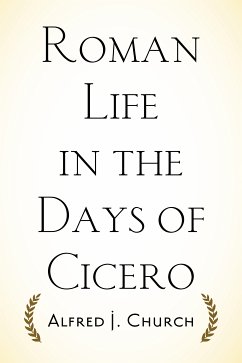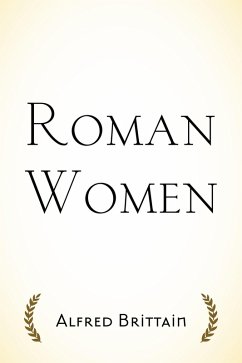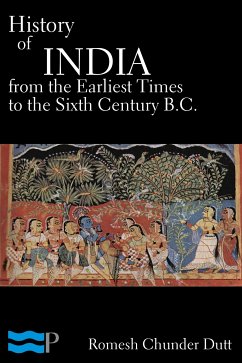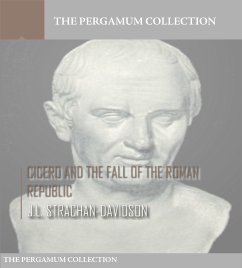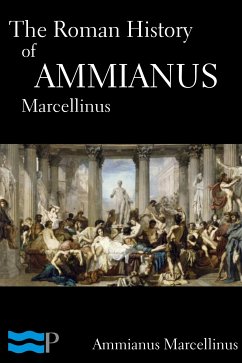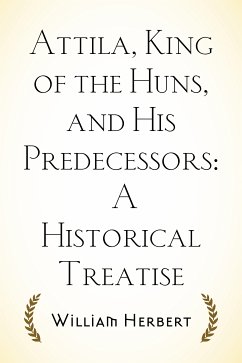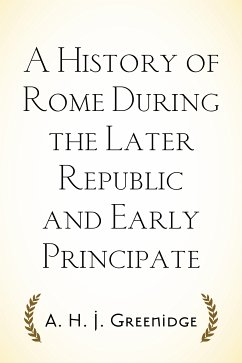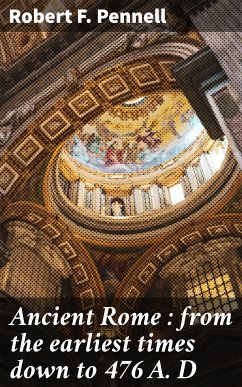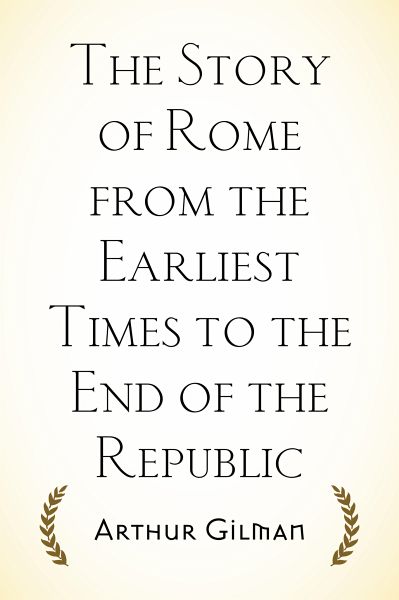
The Story of Rome from the Earliest Times to the End of the Republic (eBook, ePUB)

PAYBACK Punkte
0 °P sammeln!
This is a comprehensive history of Rome from its beginnings to the collapse of the Republic at the hands of Julius Caesar. From the preface: "It is proposed to rehearse the lustrous story of Rome, from its beginning in the mists of myth and fable down to the mischievous times when the republic came to its end, just before the brilliant period of the empire opened. As one surveys this marvellous vista from the vantage-ground of the present, attention is fixed first upon a long succession of well- authenticated facts which are shaded off in the dim distance, and finally...
This is a comprehensive history of Rome from its beginnings to the collapse of the Republic at the hands of Julius Caesar. From the preface:
"It is proposed to rehearse the lustrous story of Rome, from its beginning in the mists of myth and fable down to the mischievous times when the republic came to its end, just before the brilliant period of the empire opened.
As one surveys this marvellous vista from the vantage-ground of the present, attention is fixed first upon a long succession of well- authenticated facts which are shaded off in the dim distance, and finally lost in the obscurity of unlettered antiquity. The flesh and blood heroes of the more modern times regularly and slowly pass from view, and in their places the unsubstantial worthies of dreamy tradition start up. The transition is so gradual, however, that it is at times impossible to draw the line between history and legend. Fortunately for the purposes of this volume it is not always necessary to make the effort. The early traditions of the Eternal City have so long been recounted as truth that the world is slow to give up even the least jot or tittle of them, and when they are disproved as fact, they must be told over and over again as story.
Roman history involves a narrative of social and political struggles, the importance of which is as wide as modern civilization, and they must not be passed over without some attention, though in the present volume they cannot be treated with the thoroughness they deserve. The story has the advantage of being to a great extent a narrative of the exploits of heroes, and the attention can be held almost the whole time to the deeds of particular actors who successively occupy the focus or play the principal parts on the stage. In this way the element of personal interest, which so greatly adds to the charm of a story, may be infused into the narrative.
It is hoped to enter to some degree into the real life of the Roman people, to catch the true spirit of their actions, and to indicate the current of the national life, while avoiding the presentation of particular episodes or periods with undue prominence. It is intended to set down the facts in their proper relation to each other as well as to the facts of general history, without attempting an incursion into the domain of philosophy."
Dieser Download kann aus rechtlichen Gründen nur mit Rechnungsadresse in D, E, F, I ausgeliefert werden.




